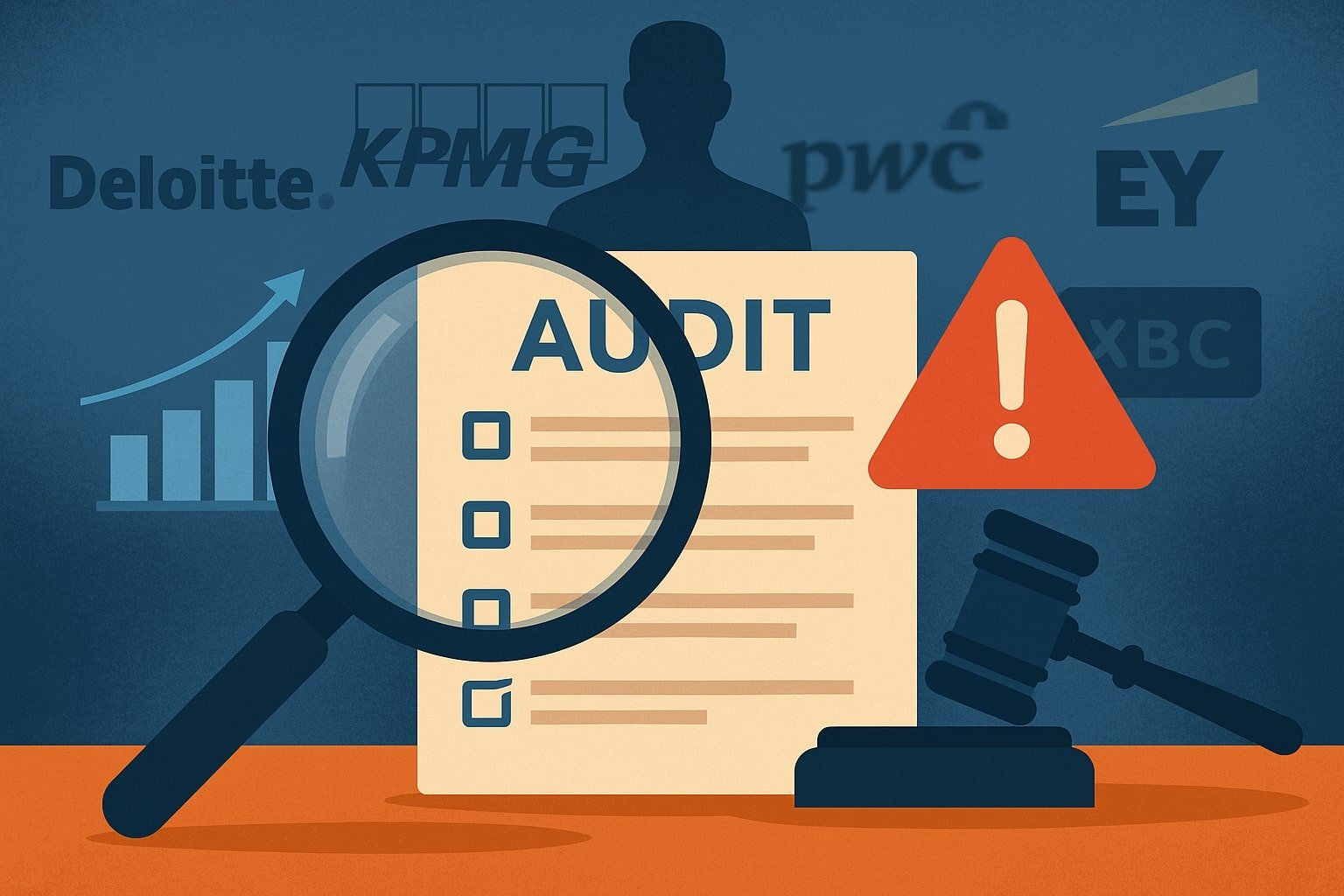India’s audit regulator, the National Financial Reporting Authority (NFRA), has flagged critical failures in audit practices across several leading accounting firms, raising concerns about auditor independence, poor documentation, and systemic governance lapses that could erode public trust in financial reporting.
The sweeping audit quality inspections (AQIs) were carried out between 2023 and 2025 across statutory audits for FY23. The regulator’s findings point to widespread non-compliance with statutory provisions, including violations of Section 144 of the Companies Act, which bars audit firms from offering non-audit services (NAS) to audit clients. NFRA observed that firms like MSKA, PwC affiliates, and SRBC breached this law, allowing advisory arms within their network to offer consulting services to audit clients, thereby compromising auditor independence.
Neglect of Related Party Transactions (RPTs)
NFRA found that in many instances, audit firms failed to properly identify or verify related party transactions. For example, BSR & Co. overlooked a Rs 550 crore debenture transaction linked to a promoter’s entity. Other firms like MSKA, SRBC, PwC, and Walker Chandiok also showed lapses in evaluating the arm’s length nature and commercial validity of several RPTs, violating Ind AS 24 and related disclosure norms.

Audit Documentation and Internal Control Failures
NFRA’s inspections revealed alarming deficiencies in audit documentation. Files were found to be incomplete, backdated, or signed off without key details. Lodha & Co. and MSKA were flagged for such practices, with NFRA advising a transition from paper-based to secure digital systems. Additionally, firms like Deloitte, MSKA, and Walker Chandiok were criticized for failing to adequately test internal financial controls related to revenue recognition and asset impairments—areas susceptible to fraud.
Governance Gaps and Leadership Accountability
The inspections exposed weak governance structures in firms, with unclear leadership responsibilities and insufficient supervisory mechanisms. MSKA lacked records on partner appointments, while SRBC was directed to revisit policies on defining “Key Managerial Personnel” to prevent conflicts of interest across the EY network.
Inspection Timeline and Scope
NFRA conducted firm-wide inspections at BSR & Co., Lodha & Co., MSKA & Associates, PwC affiliates, Deloitte, SRBC, and Walker Chandiok. The inspections included off-site reviews, on-site visits, and interviews. Reports were released from late 2024 through March 2025.
ALSO READ: Call for Cyber Experts: Join FCRF Academy as Trainers and Course Creators
Firms Respond with Promises of Reform
In response to the NFRA findings:
-
BSR & Co. said it had taken steps to strengthen audit integrity.
-
Lodha & Co. announced a move to digital documentation.
-
MSKA committed to governance reforms and stricter independence policies.
-
PwC affiliates pledged to update RPT and independence compliance mechanisms.
Regulator’s Warning: Reforms Must Be Substantive
NFRA emphasized that the audit failures were not isolated and indicated deep-rooted systemic issues. It warned that reforms must result in visible, measurable improvements across the profession. Follow-up inspections have been planned to track implementation of promised reforms.
Implications for India’s Global Financial Standing
These revelations come at a time when India is looking to strengthen its credibility in global capital markets. NFRA’s findings underscore the urgent need for Indian audit firms to pivot from mere compliance to a culture that prioritizes quality, transparency, and accountability. With investor confidence at stake, the audit profession faces a defining moment in re-establishing public trust.


